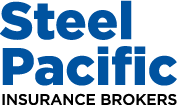Insurance is a form of risk management, delivered in the form of an insurance contract.
The purpose of that contract is to hedge against the risk of uncertain future events, such as catastrophic weather or accidents. Underinsurance is when you do not have insurance that covers all of your risks, or when you have coverage, but it is insufficient to meet all of your needs in the event of a loss.
Does Australia have an under insurance problem?
Australians are known for their eternal sunny optimism, egalitarianism and ‘mateship’. This translates to a ‘she’ll be right’ approach to insurance; a confidence that nothing bad will ever happen to them, or if it does, that someone (often the government) will bail them out. Unfortunately, if something does go wrong, and there is inadequate insurance coverage in place, no amount of optimism or mateship will restore you to the position you would have been in had the event not occurred.
Only appropriate insurance may accomplish that.
What are the risks of underinsurance?
The risks of underinsurance are many and varied, depending on the terms of the policy, including:
- Direct financial cost – if you are uninsured or grossly underinsured, you will need to dip into your finances to bear the direct financial cost of loss and consequential loss.
- Inadequate policy response – depending on the terms of your policy, the insurer may be able to:
- void the policy, decline the claim and simply refund your premium; or
- only pay a proportion of the loss, since it was grossly underinsured in the first place
What should you do to prevent being underinsured?
- Seek advice – Your broker can tell you what your existing policies cover and do not cover. Talk to your broker if there is anything you do not understand or are unsure of.
- Consider your existing finances – Will your finances allow you to absorb certain costs that are not covered by insurance? If no, then you should consider additional or other insurance cover.
- Focus on needs and replacement costs – What do you need to replace items, maintain the status quo and cover ongoing financial obligations in case something unexpected happens?
- Update – your insurance needs may change year to year as your composition changes, so adjust and update regularly. With each change to your assets, income and financial obligations – get in touch with your broker to make sure your insurance cover is adequate.
- Budget – budget for your insurance premiums as you would with any other essential expense. It is a vital risk management measure that will protect you against life’s uncertainties.
- Prepare for the unexpected – assessing and insuring potential risks is the best way to be prepared for unexpected events in life.
What should you do?
If you are concerned about underinsurance, do not delay in speaking to us. Contact us.
